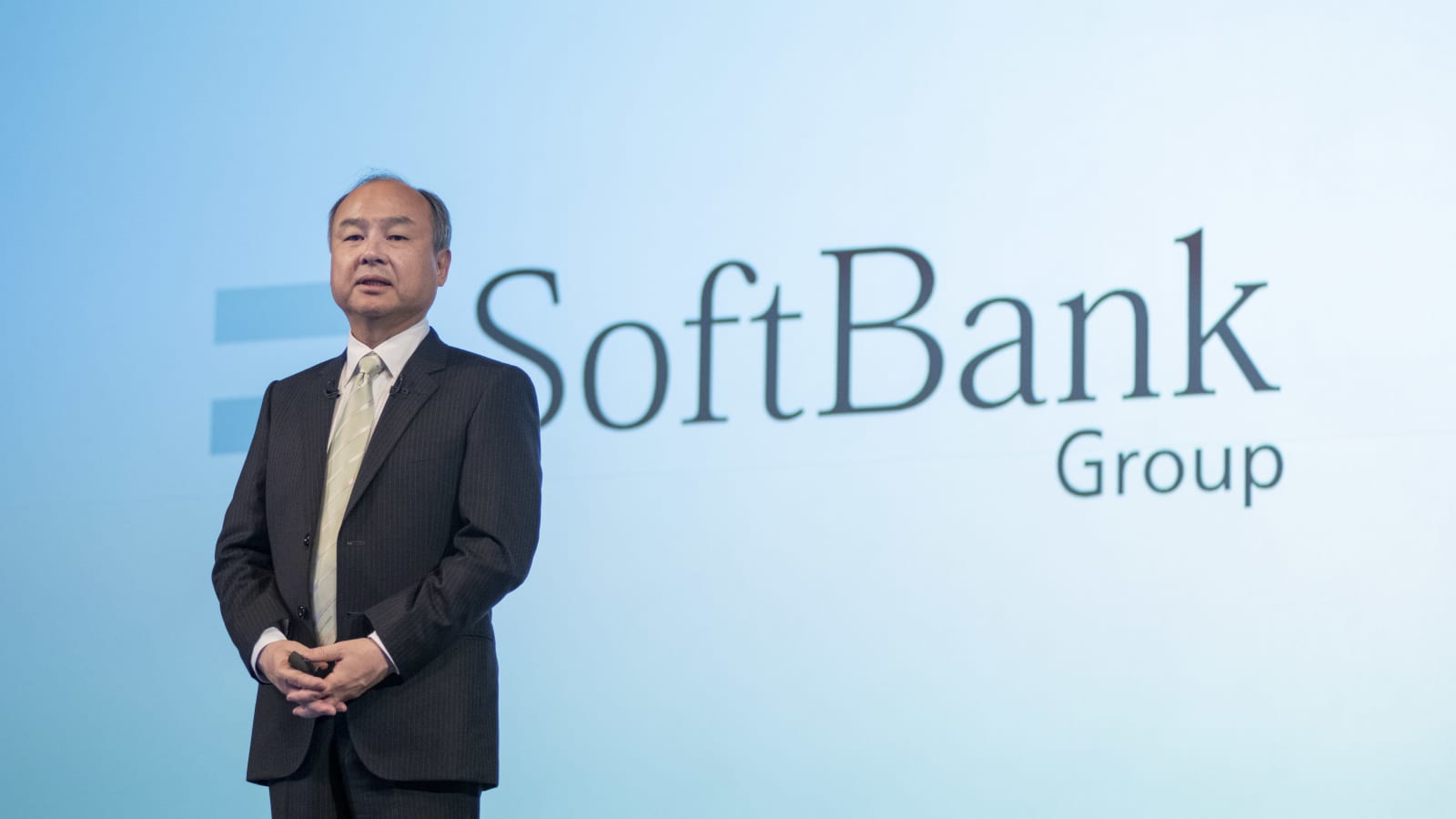SoftBank Group Stock Rockets 13% to All-Time High as Profits Smash Expectations
SoftBank Group Stock Rockets 13% to All-Time High as Profits Smash Expectations
By
Calder Monroe
Last updated:
August 8, 2025
First Published:
August 8, 2025

Getty Images
SoftBank’s Comeback Story Gains Momentum
SoftBank Group has staged one of its strongest market comebacks in recent years. On Friday, shares surged over 13%, hitting an all-time high and setting the company up for its best single-day performance in five years. The rally came on the back of a blowout earnings report and growing investor excitement around its aggressive artificial intelligence and tech-focused investments.
Profits Far Exceed Expectations
For the April to June quarter, SoftBank reported a net profit of ¥421.8 billion (about $2.87 billion), more than triple the consensus estimate of ¥127.6 billion. This marks the company’s second consecutive profitable quarter and a sharp turnaround from the ¥174.3 billion loss in the same period last year.
The dramatic improvement underscores a shift in strategy, with SoftBank capitalizing on AI, semiconductor, and digital platform investments that have rebounded sharply in value.
Vision Fund Delivers Biggest Gain in Four Years
SoftBank’s Vision Funds — its flagship tech investment vehicles — saw their valuation jump by $4.8 billion in the quarter, the largest rise since mid-2021. Even after accounting for expenses, the segment posted a profit of ¥451.4 billion (~$2.9 billion), reversing losses from the previous year.
The gains were fueled by public holdings such as Grab, Swiggy, and Coupang, as well as AI-linked assets including Arm Holdings, Nvidia, TSMC, and ByteDance. Investment gains totaled nearly ¥727 billion (~$4.94 billion), with e-commerce and AI companies contributing significantly.
AI Ambitions and Big-Ticket Projects
SoftBank’s AI focus is becoming more pronounced. The group has taken a leading role in a $40 billion funding round for OpenAI, committing $7.5 billion through Vision Fund 2, bringing its total stake to nearly $9.7 billion.
In parallel, SoftBank is pushing ahead with its $500 billion Stargate project, a massive data-center network aimed at supporting AI infrastructure worldwide. While timelines have shifted slightly, the initiative is still on track to become one of the largest AI-focused infrastructure rollouts in history.
Portfolio diversification remains a key strategy, with SoftBank holding multi-billion-dollar stakes in Nvidia, TSMC, and other AI semiconductor leaders. This, combined with a reduced loan-to-value ratio of just 17%, has strengthened its financial position.
IPO Pipeline Set to Unlock More Value
Several SoftBank-backed companies are lining up to go public in the coming months. Indian eyewear retailer Lenskart has already filed its IPO papers, targeting to raise over 21.5 billion rupees (~$247 million) through fresh share issuance.
Other potential listings include Japanese mobile payments operator PayPay, Swedish fintech giant Klarna, and travel platform Klook. Analysts believe these IPOs could further boost SoftBank’s portfolio valuation and shareholder returns.
Stock Market Impact and Investor Sentiment
Friday’s 13% leap in SoftBank shares not only set a record but also helped lift Japan’s broader stock market indices. The rally pushed the company’s share price close to ¥14,205, reinforcing investor belief in SoftBank’s growth trajectory.
Market analysts point to the combination of strong earnings, aggressive AI positioning, and an improving macroeconomic environment as the main drivers behind the rally. With AI adoption accelerating globally, SoftBank’s high-conviction bets are now seen as a competitive advantage rather than a high-risk gamble.
The Road Ahead
SoftBank’s resurgence signals a new phase for the company. Backed by strong earnings, a revitalized Vision Fund, and high-potential IPO candidates, the Japanese tech conglomerate is well-positioned to ride the global AI wave. If its current momentum holds, SoftBank could continue setting new records — both in the market and in the world of next-generation technology investments.
Popular articles
Subscribe to unlock premium content
Global Cultures and the Hidden Drivers of Productivity and Happiness

The Future of Personalized Medicine

Digital Nomads and the New Global Economy

Global Cultures and the Hidden Drivers of Productivity and Happiness

The Future of Personalized Medicine

Global Cultures and the Hidden Drivers of Productivity and Happiness









